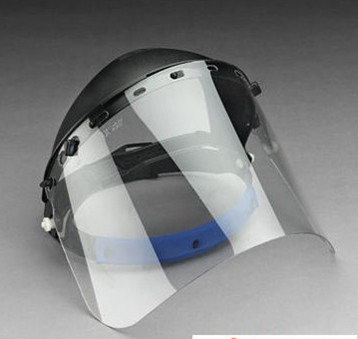anti scratich wall protect vinyl in static cling type avoid marker thin vinyl board wall sticker Wallpaper anti scratch wallpaper, kids room wallpaper, static cling wallpaper Guangzhou Yuquan Composite Material Co., Ltd , http://www.klyqfilm.com Speaking of protective glasses, some people may feel strange. Although some industries need to wear protective equipment because of their dangers, due to various reasons, units and individuals do not pay attention to them and do not protect them according to regulations. This seemingly minor neglect may bring life-long injuries to practitioners. As the saying goes, "Eye is the window of the soul." Therefore, the importance of protective glasses is self-evident.
Speaking of protective glasses, some people may feel strange. Although some industries need to wear protective equipment because of their dangers, due to various reasons, units and individuals do not pay attention to them and do not protect them according to regulations. This seemingly minor neglect may bring life-long injuries to practitioners. As the saying goes, "Eye is the window of the soul." Therefore, the importance of protective glasses is self-evident.
Failure to wear safety glasses as required can easily cause injury to the eyes and can result in serious blindness. In the case of foreign body eye damage, such as grinding metal, cutting non-metallic live cast iron, using hand tools or hand-held electric tools, or flushing and repairing metal castings with pneumatic tools, cutting rivets or screws, cutting or scraping boilers, broken hand or concrete When the work is performed, sand, metal debris foreign matter enters the eye or impacts the face. Or non-ionizing radiation eye damage, including visible light, ultraviolet light and infrared light, the emitted photon energy is not enough to produce ionization in the atoms of the absorbing molecules, so it is called non-ionizing radiation. In industrial production such as electric welding, oxygen cutting, furnaces, glass processing, hot rolling and casting, heat sources can produce strong light, ultraviolet rays, and infrared rays. The above two categories, which also include many small types of work, are dangerous types of work that are prone to eye injuries. Employees must be careful and wear protective equipment.
The role of protective glasses
Protective glasses are glasses that play a special role. Different glasses are used in different occasions. Such as hospital surgical glasses, welding glasses used when welding, laser engraving laser protective glasses, and so on. Protective glasses, also known as protective eyewear, are divided into safety glasses and protective masks. They are mainly used to protect the eyes and face from electromagnetic radiation such as ultraviolet rays, infrared rays and microwaves, dust, smoke, metal and gravel debris and chemical solutions. Sputtering damage.
Classification of protective glasses
1. Anti-friction protective glasses
2. Anti-chemical solution protective glasses
3, radiation protection glasses
Protective glasses selection method
Before choosing protective goggles, a risk assessment should be performed on the process to understand the hazards and severity of the process, the machine (tool) used, the substances involved, etc., to the eye. According to the results of the assessment, relevant measures should be implemented to reduce the hazards to the eyes of the process, and not to rely solely on protective glasses to protect the eyes of employees.
There are many kinds of protective glasses, such as dustproof glasses, impact-proof glasses, anti-chemical glasses, and anti-radiation glasses. The first three kinds of glasses look like lenses are colorless glass, but in fact due to different protective effects, the characteristics of the lens are significantly different.
Dust-proof glasses are used in a dusty environment. Generally, the fastness of the lens is not high. No matter whether it is a goggle type or a flat mirror type, ordinary flat glass lenses are used. The anti-impact spectacles are used to prevent small particles from flying through the eyes. The lenses require impact resistance. For example, laver, sander and mason should wear anti-impact glasses. If these workers wear ordinary dust-proof glasses, then Iron sand and gravel are broken when they fly into the eyeglasses, and the eyes will suffer more damage. Anti-chemical glasses lens acid and alkali, and corrosion, which is not available in other glasses.
Daily care of protective glasses
1. Select goggles to use products that have passed inspection by product inspection agencies;
2, the width and size of the goggles should be suitable for the user's face;
3, rough lens wear, frame damage will affect the operator's vision, should be promptly exchanged;
4. Goggles should be used by special persons to prevent eye infections;
5, welding goggles filter and protective film to be selected and replaced according to the requirements of the operation;
6, to prevent heavy pressure drop, to prevent the hard object friction lens and mask.